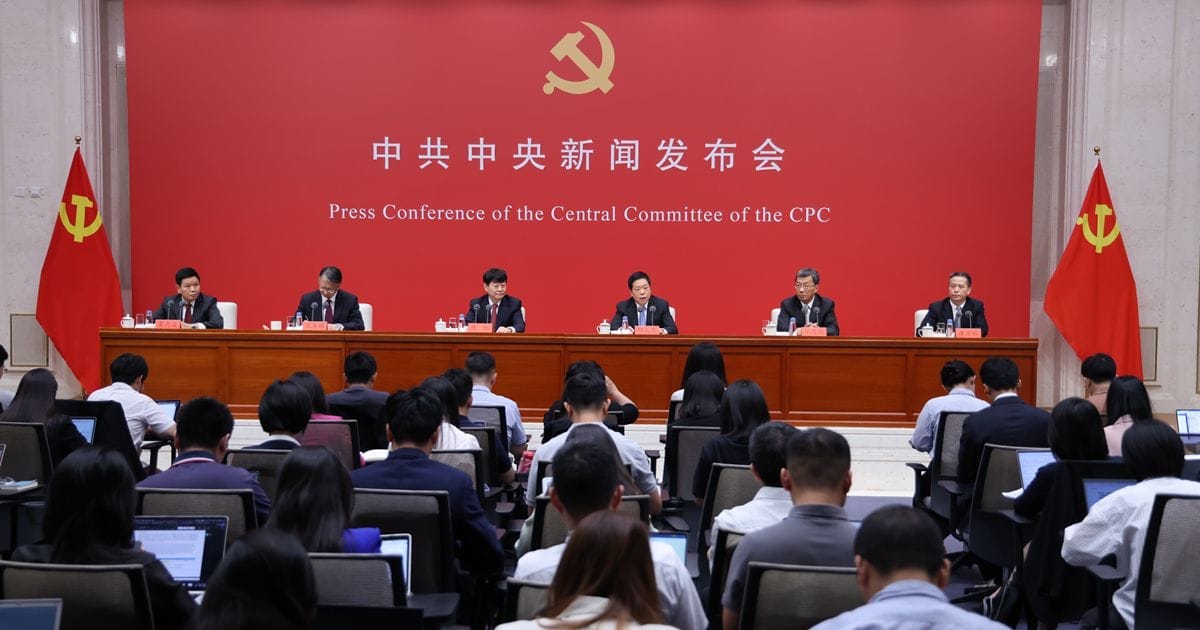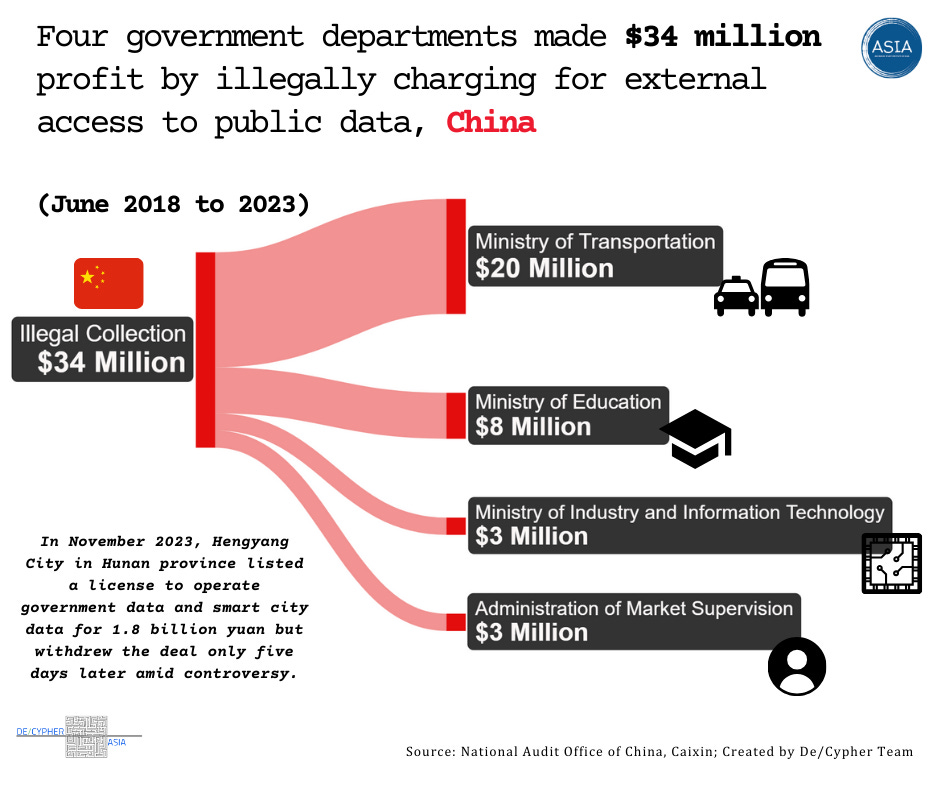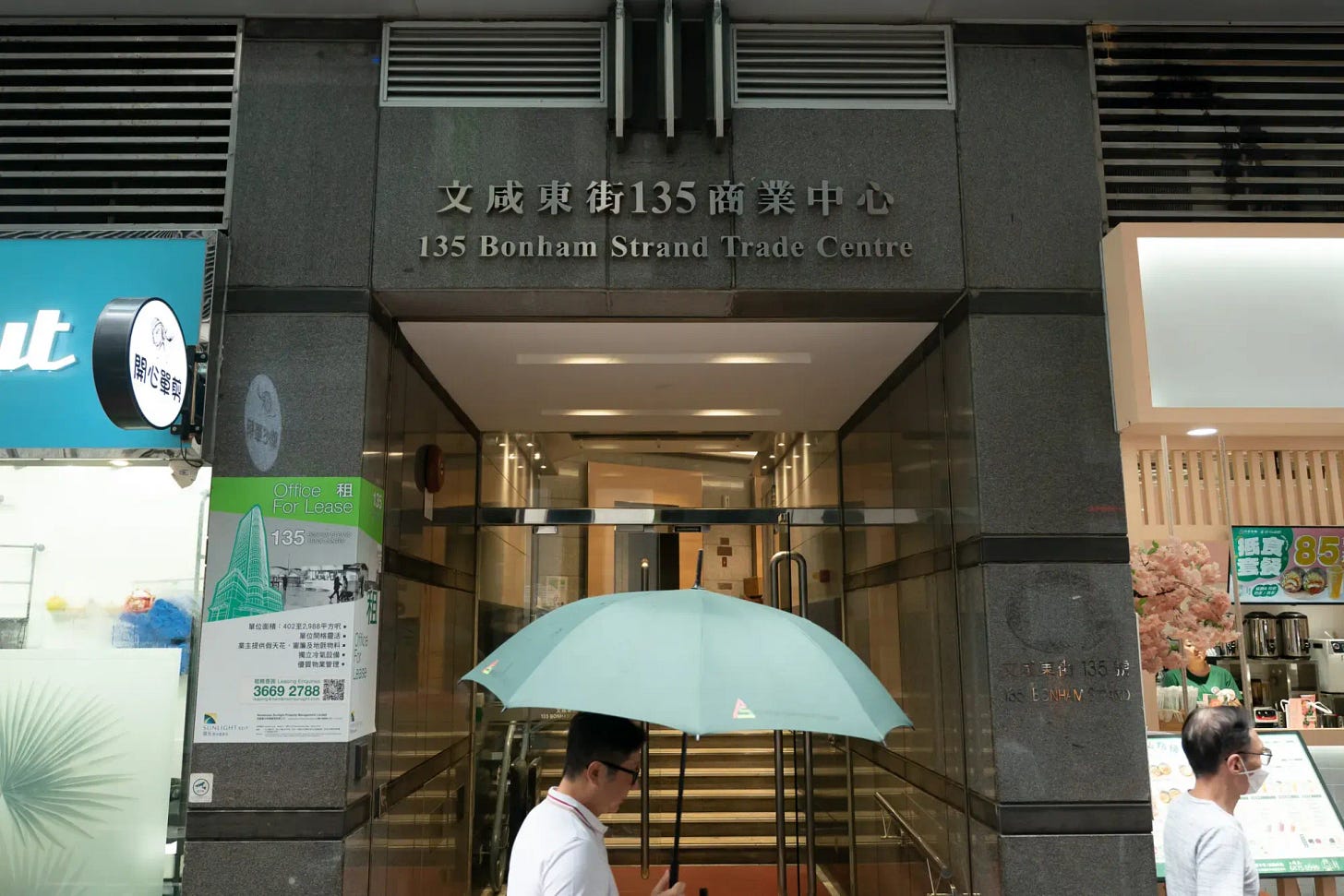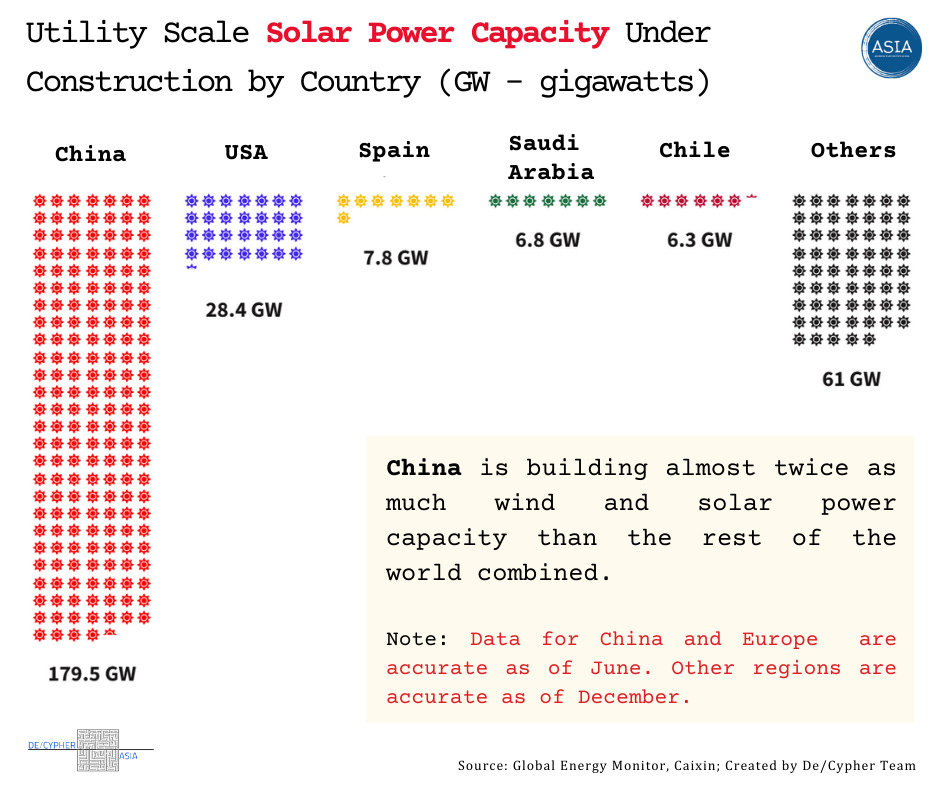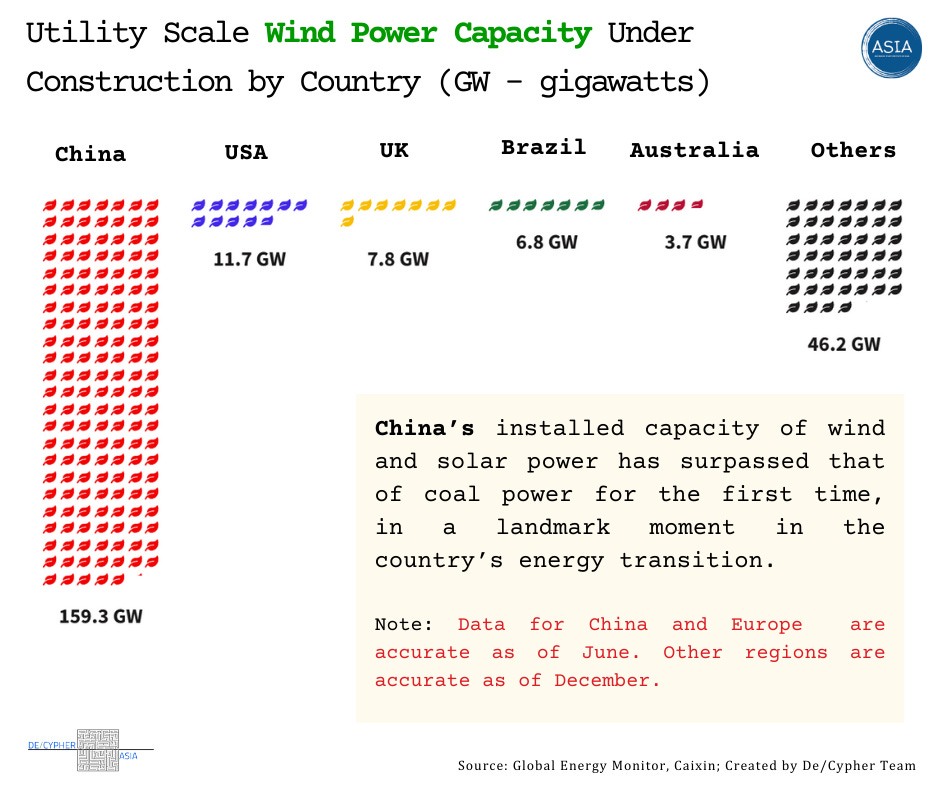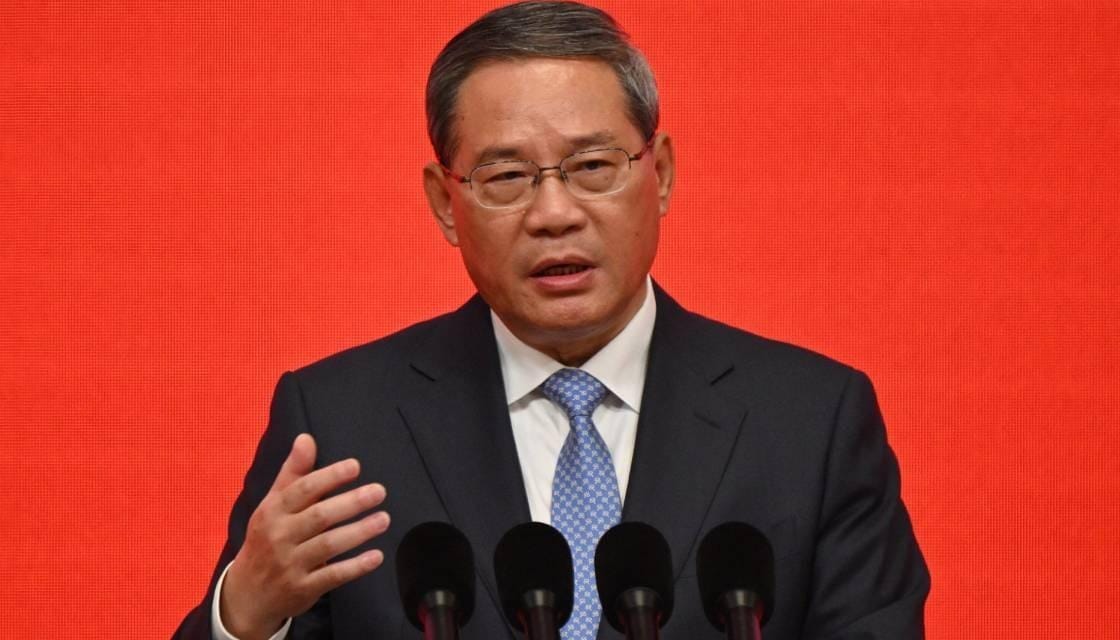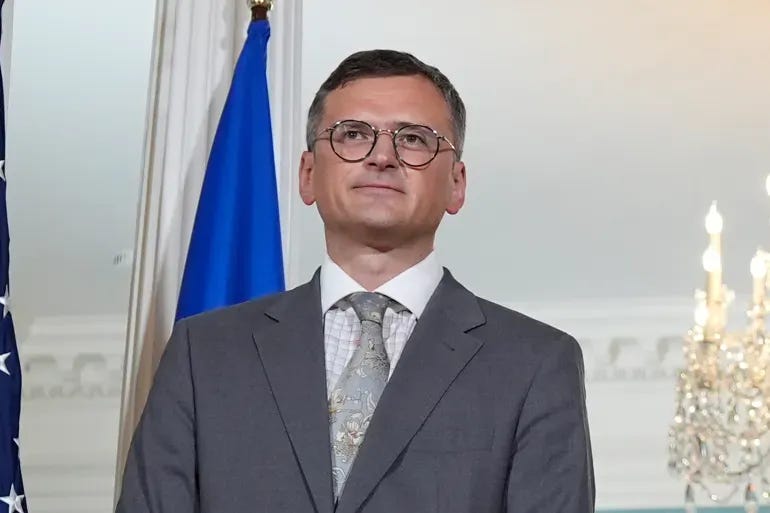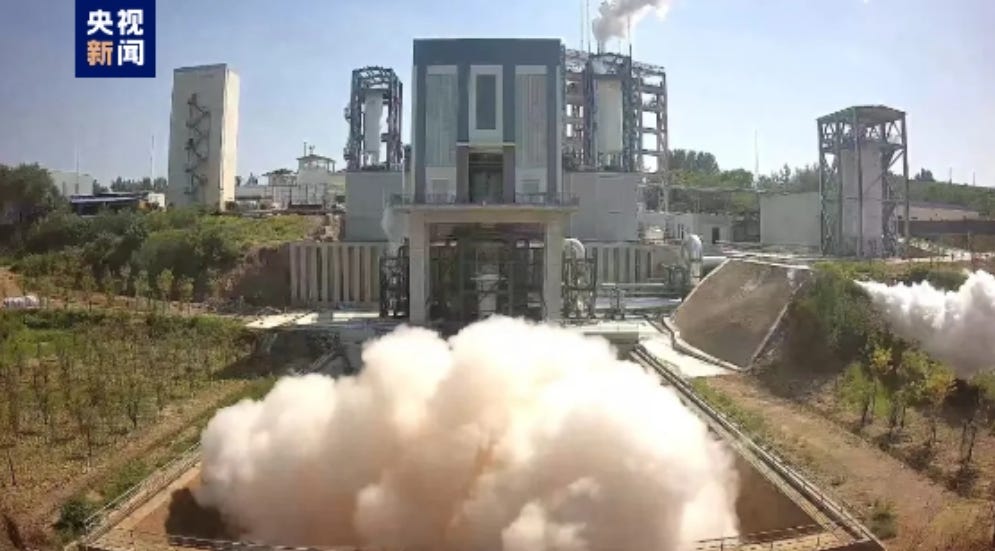"Russia's new tech, China's post plenum update and Indonesia's golden visa"
China in Quotes
"I don’t think Trump will go further than US President Joe Biden on the Taiwan issue. If you compare the policies of the Biden and Trump eras, Biden’s [administration] is more inclined towards Taiwan’s independence than Trump. One thing you may have noticed is that Trump always claimed that he was the only US president since the Cold War who had not been involved in a new war. What does this mean? Trump really does not want to go to war with China in the Taiwan Strait. He will be more cautious than Biden in terms of preventing a war across the strait."
-Prof. Yan Xuetong, Dean of the Institute of International Relations at Tsinghua University
De/Cypher Data Dive📈
According to the National Audit Office of China, seven organizations from four government departments profited illegally by charging $34 million for unauthorized external access to public data. (Caixin)
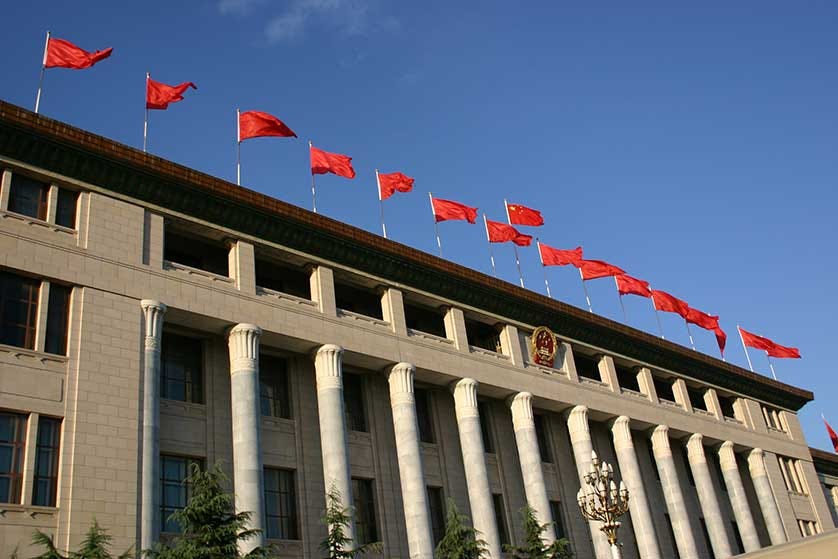
Quick China: Unmissable Stories 📜
Where is Russia Getting New Tech From? 135, Bonham Street, Hong Kong
From a nondescript seventh-floor office at 135 Bonham Strand near Hong Kong’s financial district, at least four companies are operating with a shadowy mission: facilitating the illicit trade of Western technology to Russia. Shell companies at that address have acquired millions of restricted chips and sensors for military technology companies in Russia, many of which have been placed under sanctions by the U.S. government, according to an examination by The New York Times.
Since Russia invaded Ukraine in 2022, nearly $4 billion of restricted chips have poured into Russia from more than 6,000 companies, including those at Hong Kong’s 135 Bonham Strand, according to a Times analysis of Russian customs data, corporate records, domain registrations and sanctions data. The analysis examined nearly 800,000 shipments of restricted electronic goods into Russia since mid-2021.Even as the West sought to cut off access to semiconductors through trade restrictions, Russia established such a robust parallel supply chain that it imported almost the same number of critical chips in the last three months of 2023 that it did in the same period in 2021, according to the analysis of Russian customs data. The reliance on China for many of these chips also deepened, with transactions that were historically settled in U.S. dollars now increasingly executed in Renminbi, according to the analysis. (NYT)
China is pulling away from supercomputer race
China recently withdrew from Top500, an international forum that ranks the world's fastest supercomputers. The new secrecy will make it harder to understand China’s supercomputing advances from the outside. (WSJ)
Chinese stocks slump post Plenum
Chinese stocks suffered their biggest decline in six months as a lack of major policy support following the Third Plenum reinforced bearish sentiment. The onshore benchmark CSI 300 Index closed 2.1% lower, following a 0.7% drop in the previous session. The declines have now erased gains seen last week, when signs of purchases by the “national team” of state funds amid the twice-a-decade political gathering propped up equity gauges. The steep losses are likely to be a taste of what may come without state support in a market that has lost momentum amid China’s economic troubles and geopolitical risks. Investors had looked to the Third Plenum for a clearer policy roadmap to end the property crisis and revive consumption, but the details released so far have fallen short of expectations. (Bloomberg)
He Lifeng and the 100 Questions Book on Debt Management Lessons from The Plenum
"Authoritative Guidance Materials from the Third Plenary Session of the 20th CPC Central Committee Discuss Government Debt Management: Strictly Implement Lifelong Accountability System for Local Government Borrowing and Properly Handle Financing Platform Debts and Assets". Excerpt:
Recently, the book "A Hundred Questions on Learning the Decision of the Twentieth Central Committee's Third Plenary Session" was published. When discussing "how to understand the improvement of the government debt management system," the book points out that moderate government borrowing is beneficial for accelerating development and benefiting future generations, aligning with the principle of intergenerational equity and is a common international practice. However, excessive borrowing beyond objective conditions and uncontrolled management can lead to heavy debt burdens, affecting the sustainability of economic and social development. Improving the government debt management system is crucial for enhancing the sustainability of economic and social development. It is essential to accurately grasp the reform requirements, balance development and security, and consider both current and long-term needs. (Security Times)
China Has A New Hacking Tournament, Results Are Privately Held
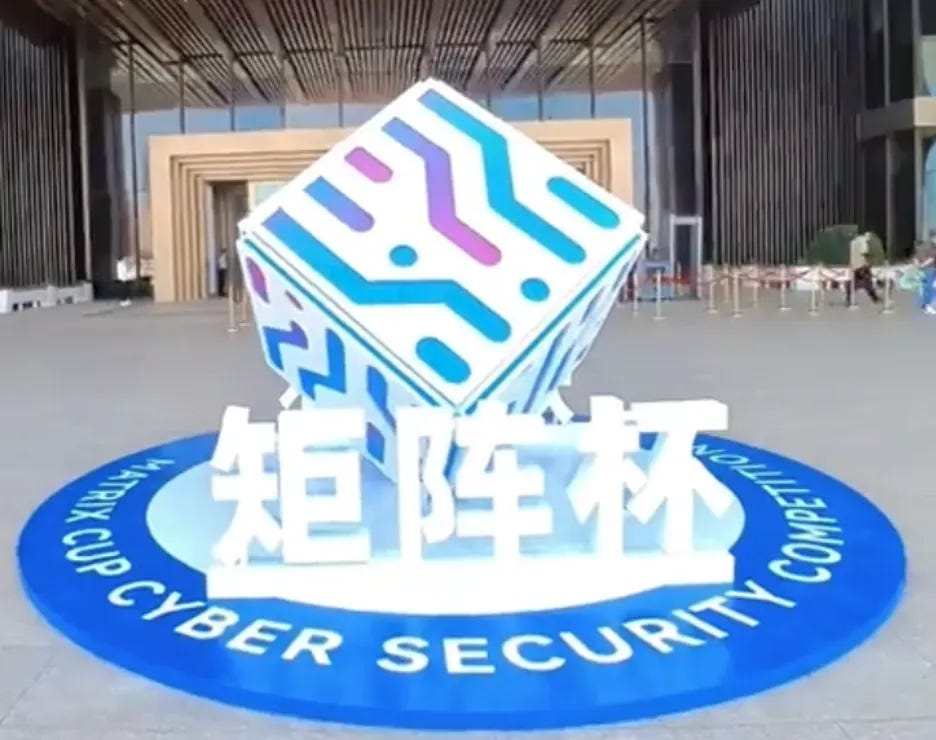
China’s brand-new hacking contest, Matrix Cup, was inaugurated in May 2024 in Qingdao, Shandong Province, and introduced as a “high-profile and large-scale cybersecurity competition in the Eastern Hemisphere.” This is no exaggeration. Organized by 360 Digital Security Group and Beijing Huayunan Information Technology Co. (also known as VUL.AI), the Matrix Cup brings together China’s highly influential actors from academia and the private sector, featuring various types of challenges and offering substantial monetary rewards. With higher award payouts than any other domestic or international hacking competitions, the Matrix Cup boasts prize amounts of US$ 2.75 million that surpass even Pwn2Own's US$1.1 million (2024) and the Tianfu Cup's US$1.4 million (2023).
Beyond its size and scale, the contest aligns with China’s cyber policies, which emphasize increasing reliance on domestic products as the nation shifts away from US vendors. It prioritizes new talent cultivation and expands the access of intelligence agencies to critical vulnerabilities, as the vulnerabilities found in the contest are likely channeled to the Ministry of State Security (MSS) for potential use in offensive operations. This analysis first explores the Matrix Cup's structure and its alignment with China’s policy objectives, then examines the contest’s results and targets, and finally, considers how it fits into China’s broader strategic outlook and addresses intelligence needs. (NATTO)
In the Backdrop of East Asia Summit, Laos-China Military Drill
From July 5-19, China and Laos commenced joint military exercises, known as the "Laos-China Friendship Shield-2024,". This marked the latest chapter in a growing military partnership between the two nations. The exercises involved approximately 900 Laotian and 300 Chinese troops, with a focus on technical cooperation, weapons handling, and joint maneuvers. Notably, China introduced its advanced QBZ-191 assault rifle to the Laotian military. Moreover, the integration of unmanned aerial vehicles (UAVs) into the drills underscored China's intent to test and potentially share this technology with its ally.
While Laos sought to modernize its military and benefit from Chinese expertise, the exercises also served broader geopolitical interests. China's involvement in these drills is seen as an effort to expand its influence in Southeast Asia as Laos' geographical location, bordering China and situated along the Mekong River, offers geostrategic advantages for Beijing. This deepening military ties between the two nations occurred against the backdrop of Laos' significant debt burden, primarily owed to China. Many of these debts are linked to infrastructure projects under Beijing's Belt and Road Initiative. This economic dependence raises concerns about Laos' ability to maintain its independence in broader foreign and domestic policy decisions. (US-ASEAN)
Surprising rate cut by Central Bank in China
China's central bank surprised markets for a second time this week by conducting an unscheduled lending operation on Thursday at steeply lower rates, suggesting authorities are trying to provide heavier monetary stimulus to prop up the economy. The medium-term lending facility (MLF) operation comes after the central bank cut several benchmark lending rates on Monday, just days after a top leadership meeting, which had outlined other major reforms. (Reuters)
China unveils a $41 Billion Plan to Boost Consumption
China disclosed for the first time it’s earmarking 300 billion yuan ($41 billion) for an initiative to give a makeover to the country’s stock of industrial and household equipment. As part of one of this year’s main stimulus programs designed to lift consumer spending, the central government will use funds raised by selling ultra-long special sovereign bonds this year for the overhaul, according to a document released Thursday.
About half of that money will finance subsidies for companies that buy new equipment, while the rest will go to local governments to enact various incentives for consumers to trade in products like cars. “The foundation of a recovery in consumption still needs to be solidified,” Zhao Chenxin, vice chairman of the National Development and Reform Commission, the country’s top economic planning agency, said during a press briefing on Thursday. “I believe these measures will create a positive impact on consumption in the second half of the year.” The program is similar to a “cash for clunkers” initiative seen in countries like the US in trying to coax consumers and businesses to spend more. But its impact on domestic demand has yet to be felt, as China reported retail sales growing in June at the weakest monthly pace since December 2022. (Bloomberg)
Chinese and Russian Bombers Fly Near Alaska
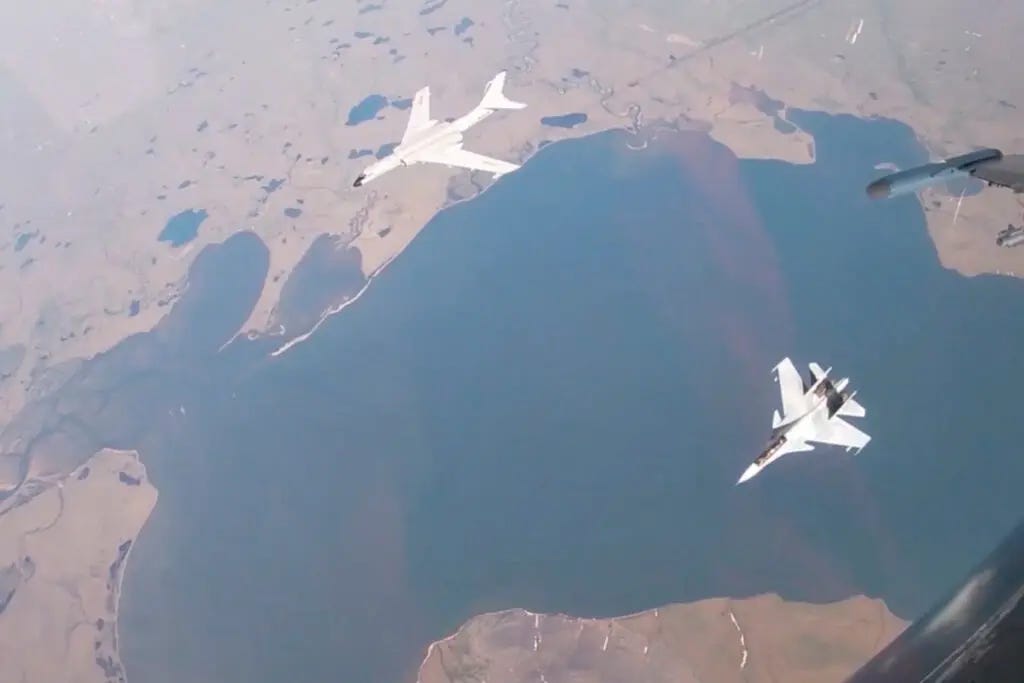
Two of China’s H-6-series aircraft, as well as a pair of Russian Tu-95 Bear bombers, flew through a portion of the Air Defense Identification Zone (ADIZ) around Alaska earlier today. This is the first time Chinese H-6s of any kind have operated in this part of the world and they may well have flown from bases in Russia to get there. Regardless, this is an important development when it comes to Beijing’s ability to project power and underscores its ties with Moscow that have significantly strengthed since the latter launched its all-out invasion of Ukraine in 2022. (The Warzone)
China wants to cripple high frequency trading
China is considering a fee hike of at least tenfold on high-frequency trading, its latest attempt to rein in some quantitative strategies deemed by regulators as a threat to fairness in the nation’s retail investor-dominated stock market. (Bloomberg)
China had connected to the grid a total of 1,180 gigawatts (GW) of wind and solar power by the end of June, which accounted for 38.4% of the country’s overall installed power capacity
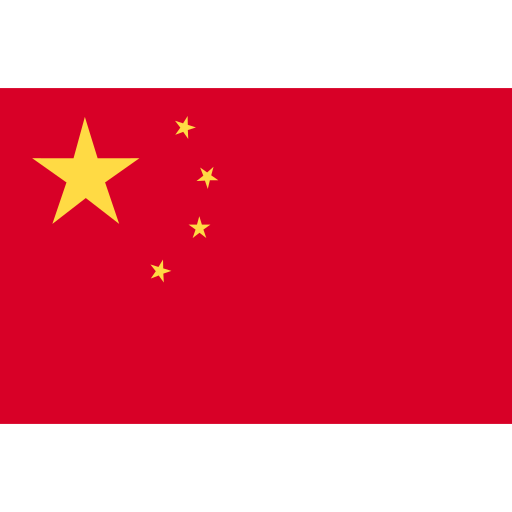
Beyond The Great Wall 🧱
Exploring News About China in Depth
Economy
China Cuts Interest Rates in Bid to Prop Up Lagging Economic Growth
Cheng Leng and Thomas Hale write in Financial Times that China has cut its one-year loan prime rate to 3.35% and the five-year rate to 3.85%, both by 0.1 percentage point. The People’s Bank of China aims to support the economy following the Communist party’s third plenum, but analysts warn the impact may be moderate without additional fiscal stimulus and policy reforms. The cuts also signal potential changes in the central bank's rate-setting framework.
WTO Cites ‘Lack of Transparency’ on Chinese Industrial Subsidies
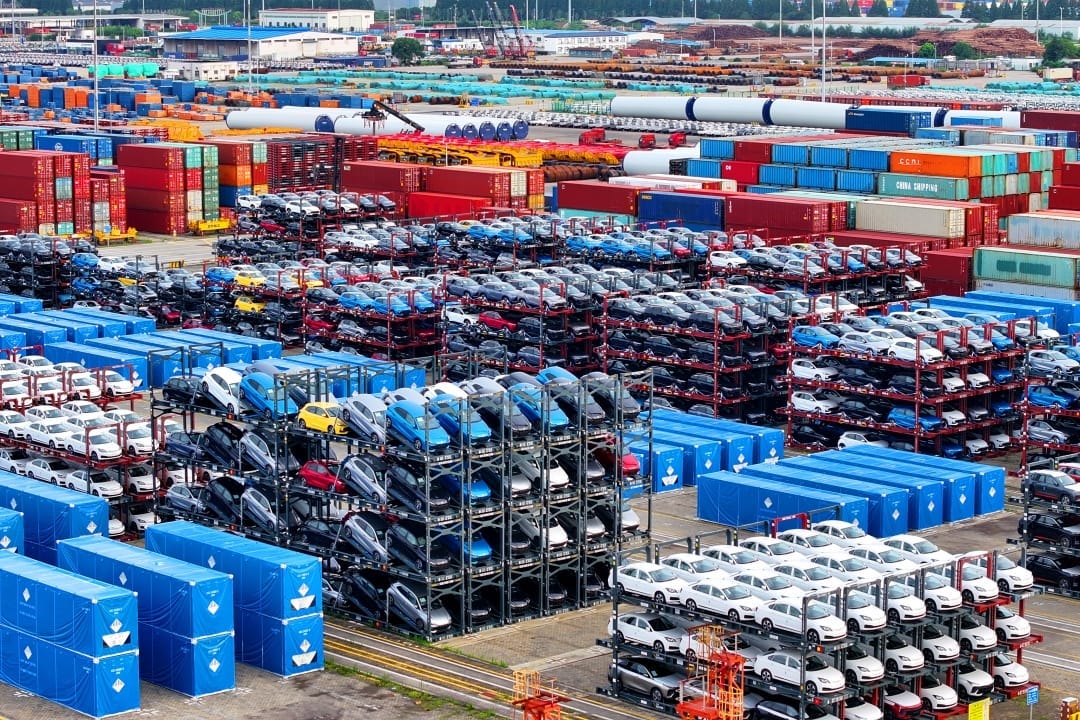
Caixin reports that the World Trade Organization (WTO) criticized China's insufficient transparency on industrial subsidies, complicating global trade dynamics. The WTO's review highlights incomplete disclosures on Chinese support programs, affecting sectors like aluminium, electric vehicles, and semiconductors. This lack of clarity fuels global complaints and prompts trade barriers from the U.S., EU, and other nations.
Internal Politics 🏛️
China’s Leaders Float Idea of Raising Retirement Age; Public Reacts Angrily
Laura He and Fred He report for CNN that China announced plans to raise its low statutory retirement ages to address the challenges of an aging population and a pension funding crisis. The current retirement age is 60 for men and 50 or 55 for female urban workers. The new plan, unveiled after the third plenum of China's leadership, proposes gradually delaying retirement age, possibly to 65. This proposal has sparked backlash on social media, with concerns about delayed pensions and fewer job opportunities for younger people.
China Unveils Rules for Implementing Law on Guarding State Secrets
Xinhua reports that Chinese Premier Li Qiang signed a decree to implement new regulations under the Law on Guarding State Secrets, effective September 1. The regulations, comprising six chapters and 74 articles, aim to refine state-secret protection mechanisms and specify responsibilities. They mandate commendations for safeguarding secrets, require internet operators to establish confidentiality protocols, and enforce strict checks on personnel handling confidential information.
China Cracks Down on Negligent Prosecutors
Yang Zekun writes in China Daily that over 280 Chinese prosecutors have been penalised for intentional or gross negligence since 2020, as the Supreme People's Procuratorate enforces stricter judicial accountability. Revised regulations now outline 13 types of prosecutorial misconduct, including concealing facts and mishandling evidence. Punishments target serious negligence and errors in fact and law application. Prosecutors remain accountable throughout their careers, with 246 retried cases leading to thorough examinations and accountability measures to prevent future wrongful convictions.
China And The World🌐
Beijing and Manila Strike Deal to Reduce Tensions in South China Sea
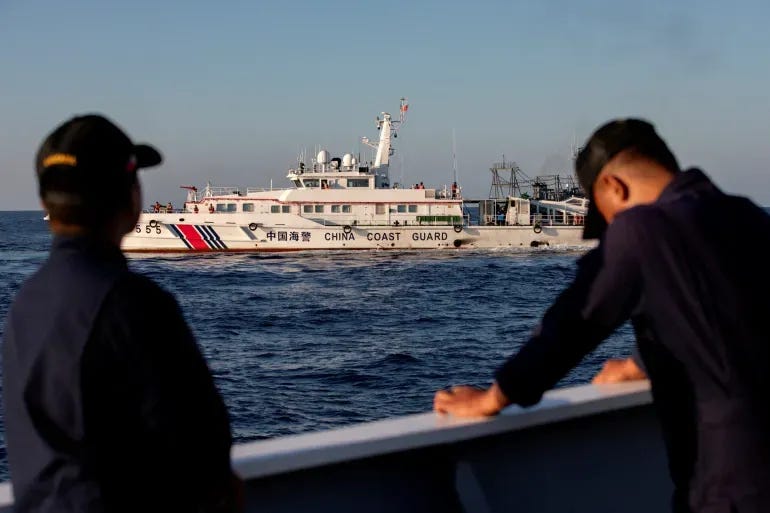
Kathrin Hille writes in Financial Times that China and the Philippines reached a provisional agreement to allow resupply missions to the Philippine military outpost on the disputed Second Thomas Shoal. This follows consultations and aims to defuse escalating tensions, marked by violent clashes and Chinese coast guard disruptions. China agreed to permit humanitarian missions but reiterated its sovereignty claim. The Philippines' Department of Foreign Affairs emphasized the need for continued dialogue and consultation.
Palestinian Factions Sign Beijing Declaration on Ending Division, Strengthening Palestinian National Unity
Xinhua reports that 14 Palestinian factions signed the Beijing Declaration after reconciliation talks in Beijing from July 21-23. Witnessed by Chinese Foreign Minister Wang Yi, the declaration aims to end division and bolster national unity under the Palestine Liberation Organization (PLO). It calls for an international conference to address Palestinian rights and outlines steps for establishing an interim reconciliation government, reconstructing Gaza, and holding general elections.
Japan and China Resume Strategic Dialogue After 4 Years
Shimpei Kawakami writes in Nikkei that Japan and China resumed strategic dialogue after a four-and-a-half-year hiatus, with Vice Foreign Ministers Masataka Okano and Ma Zhaoxu meeting in Tokyo. They discussed the East and South China seas, Ukraine, Fukushima wastewater, and detained Japanese nationals. This dialogue follows a meeting between Chinese President Xi Jinping and Japanese Prime Minister Fumio Kishida in November. Both nations aim to stabilise ties and plan further high-level communications, potentially including talks during upcoming ASEAN, G20, and APEC summits, as well as Xi's possible visit to Japan.
China Says Italy PM Meloni to Visit from Saturday
The Standard reports that Italian Prime Minister Giorgia Meloni will visit China from July 27 to 31, marking her first trip to China since taking office in 2022. Meloni will meet President Xi Jinping and Premier Li Qiang to discuss bilateral relations and issues of mutual concern. The visit aims to deepen practical cooperation and cultural exchange, promoting long-term China-Italy and China-Europe relations. Despite withdrawing from China's Belt and Road Initiative last year, Italy seeks to strengthen trade ties with China, a key trading partner.
Ukraine Tells China That Russia Not Ready for 'Good Faith' Talks
CNA reports that Ukraine's Foreign Minister Dmytro Kuleba informed Chinese Foreign Minister Wang Yi that Russia is not currently prepared for "good faith" negotiations to end the war. During his visit to China, Kuleba emphasized Ukraine's readiness to negotiate when Russia is willing to engage sincerely. Despite China's neutral stance and calls for negotiations, it remains a key political and economic partner to Russia. Kuleba's visit, the first by a senior Ukrainian official since the invasion, aims to highlight the importance of a just peace in Ukraine, which he asserts aligns with China's strategic interests.
Apple COO Meets Shenzhen Official to Discuss Supply Chain Ahead of iPhone 16 Launch
Kelly Le reports in SCMP that Apple COO Jeff Williams met Shenzhen Communist Party Secretary Meng Fanli to discuss supply chain matters as Apple ramps up production for the iPhone 16 series. Williams emphasized Shenzhen's importance to Apple and expressed intentions to deepen cooperation. Meng welcomed increased Apple investment, highlighting efforts to strengthen the local supply chain. The meeting follows Apple's plan to open a new research lab in Shenzhen and further investments in Chinese R&D centres.
US Should Fund Ways to Help Chinese Get Around ‘Great Firewall’, Lawmakers Hear
Bochen Han reports in SCMP that experts urged the US to fund new censorship circumvention tools and support Chinese students studying in the US. Testifying before the House select committee on China, Xiao Qiang from China Digital Times and Nat Kretchun from the Open Technology Fund highlighted the need for innovative technologies to bypass China's Great Firewall. They stressed the importance of bringing Chinese students to the US, as those with overseas experience often become sophisticated circumvention users. Zack Cooper of the American Enterprise Institute advocated for a comprehensive internet freedom initiative.
US Climate Envoy to Go to China as Talks Progress on Greenhouse Gas Cuts

Holly Chik reports in SCMP that US climate envoy John Podesta announced plans to visit China later this year to advance discussions on reducing greenhouse gas emissions. The focus is on potent pollutants like industrial nitrous oxide (N2O), which has 300 times the warming potential of carbon dioxide. Podesta emphasized the importance of seizing the opportunity to cut N2O emissions, noting that the US and China account for about 80% of global industrial N2O emissions.
US, Canada Jets Intercept China, Russia Planes Near Alaska
Arab News reports that US and Canadian warplanes intercepted two Russian TU-95 bombers and two Chinese H-6 bombers in international airspace near Alaska on Wednesday. The joint US-Canadian North American Aerospace Defense Command (NORAD) tracked and intercepted the aircraft in the Alaska Air Defense Identification Zone, a monitored perimeter beyond national airspace borders. The bombers remained in international airspace and did not enter US or Canadian sovereign airspace.
Nippon Steel Ends Stormy, Half-Century Partnership with Baosteel
Takashi Sugimoto writes in Nikkei that Nippon Steel has quietly ended its joint venture with China's Baoshan Iron & Steel (Baosteel), concluding a complex 50-year relationship. The partnership began with Japan aiding China's modernization but shifted as Baosteel grew into a major rival. The 2008 financial crisis and a 2021 patent lawsuit marked turning points. Now, Nippon Steel is focusing on the U.S. market, leveraging its environmental technology in steelmaking, as Chinese steelmakers dominate domestically.
Honda to Cut Gas Car Production in China by 19% From October
Supriya Singh reports in Bloomberg that Honda Motor Co. will reduce its gasoline car production in China by 19% starting in October, as part of its shift towards electrification. The Japanese automaker will halt one production line at Dongfeng Honda, with an annual capacity of 240,000 units, and entirely shut down its GAC Honda plant, which can produce 50,000 units annually. This move will decrease Honda’s production capacity in China from 1.5 million units. Amid intense competition from local electric vehicle manufacturers like BYD and Tesla, Honda aims to optimize production for sustainable growth in China.
Tech🧑💻 in China
China Discovers Water Molecules in Lunar Samples
CGTN reports that Chinese scientists found water molecules in lunar soil samples collected by the Chang'e-5 mission in 2020. Researchers from the Chinese Academy of Sciences and several universities identified ULM-1, a mineral crystal enriched with water molecules and ammonium. This discovery suggests potential for human utilization of lunar resources if similar hydrated minerals are abundant.
China Completes New Test for Liquid Rocket Engines
CGTN reports that China has successfully conducted a vertical high-altitude simulation test for liquid rocket engines, a significant step for its new generation of manned rockets. The China Aerospace Science and Technology Corporation stated that the test, performed at the world's longest vertical high-altitude simulation test stand, demonstrates China's enhanced capability in extended high-altitude testing, supporting its manned lunar exploration ambitions.
China Sets Green Targets for Data Centres
Our Today reports that China has introduced an action plan to promote the green development of data centres, targeting a reduction in average power usage effectiveness (PUE) to below 1.5 by 2025. Jointly issued by the National Development and Reform Commission and other agencies, the plan aims to increase the utilization of renewable energy by 10% annually. By 2030, data centres are expected to achieve internationally advanced levels in PUE, energy, and carbon efficiency, while improving renewable energy usage.
China and Arms Procurement
Written by Priyanka Garodia, Geopolitical Research Analyst - South Asia
The last two decades have seen the unprecedented rise of the People’s Republic of China in the global world. Its economic capabilities and its world-class military, strengthened by the strategic diplomacy it deploys under the leadership of the Communist Party of China (CCP) and Xi Jinping, are some of the reasons for its clout. The 19th National Party Congress of the CCP in 2017 was a pivotal moment in setting out China’s military ambitions. Under Xi Jinping’s leadership, the decision to modernise the People’s Liberation Army (PLA) of China was of paramount importance. Xi Jinping emphasised the need for a “world-class” army that was modern and well equipped to protect China’s national interests. China is currently undergoing the fastest military buildup since the Soviet Union. Not only is the Chinese Army the largest standing army globally, the People’s Liberation Army Navy (PLAN) and the People’s Liberation Air Force (PLAAF) are significantly developed. The Stockholm International Peace Research Institute (SIPR) reported that China spent approximately $296 billion in military expenditure, the second largest globally. The Chinese budget declared in 2024 saw a 7.2% increase in military expenditure, indicating that the strong military vision of the Red Dragon has the economic backing of the Chinese state. Military loyalty, army preparedness and efficiency were highlighted as the need of the hour.
China's position as the fourth-largest arms dealer in the world has been a subject of increasing attention in recent years owing to the turnover that China achieved from being an arms importer to an arms exporter. The country's military policy, which emphasises a flexible approach to advancing security interests, has been a key driver of its arms sales strategy. China seeks to achieve relative parity with the rest of the world's military capabilities based on indigenous knowledge by encouraging domestic innovation, reducing reliance on foreign technology transfers and arms imports, and using civil-military integration to overcome long-standing obstacles to innovation. Chinese weapons have found buyers across the globe. Strategic partnerships have been established between China and select countries in Asia, Africa and the Middle East where technological transfer, economic trade and arms deals combine to create strategic partnerships. Some of the countries China trades arms with are Pakistan, Bangladesh, Kazakhstan, Nigeria, Venezuela, Morocco, Saudi Arabia, and Peru, among others. Three major arguments can be made to explain the transition of China from an arms importer to a global exporter.
Firstly, China has invested consistently in developing a technological and scientific base to support defence, military innovation and production. This has been done keeping in mind the operational needs of the PLA and the security needs of China.
Secondly, China has been investing consistently in military spending. Irrespective of declining economic growth for the first time since its economy was liberalised, China’s military budget was strengthened with an increase in expenditure in 2024.
Thirdly, China is growing more assertive of its geostrategic aspirations with time and is willing to invest in strategic partnerships, especially in South and Southeast Asia. The export trend is reflective of a stronger foreign policy and the creation of reliance and collaboration among players it deems important to its national goals.
However, given the nature of the Chinese state and the limited information available about the country, a lot remains in the dark.
Does Xi Look Any Closer to Retiring?
Written By Aurko Chakrabarti, Applied Geopolitical Researcher
It seems unlikely that Xi Jinping will release his grip on the proverbial throne, as head of the CCP, given the constitutional amendments made in 2018, which abolished presidential term limits. This seems reminiscent of the Mao era of politics, but is unusual given that leaders post Mao have typically been required to step down after two terms or at the age of 68. Xi, aged 71, shows no signs of grooming a successor or stepping down.
Xi's extended rule has consequences for the CCP's stability. The targeting of party elders, including the public humiliation of predecessor Hu Jintao, has reduced the appeal of retirement for senior officials. This environment, combined with Xi's aggressive anti-corruption campaigns and intraparty purges, has eliminated the possibility of a peaceful transition from power.
The uncertainty surrounding Xi's succession is exacerbated by his reluctance to name a successor, which could undermine his authority and exacerbate divisions within his network of supporters. Naming a successor could render Xi ineffective and result in multiple power centres within the CCP. His anti-corruption campaigns and internal party purges have also made peaceful retirement a risky proposition. Rumours about Xi's health, such as that he had a stroke, circulate due to the intense secrecy surrounding Chinese leaders' well-being.
Historically, Chinese leadership changes have been fraught with political manoeuvring and power struggles. Mao Zedong's succession plans shifted dramatically, including the deaths of designated heirs. Purges and power reassertions were common during Deng Xiaoping's reign. These precedents indicate that Xi's succession, whenever it occurs, will be unpredictable and disorderly.
Xi’s reluctance to anoint a successor and the opaque nature of Chinese politics ensure that the question of his succession remains a significant concern for global stability. The future leadership of China, and its policy direction, will have profound implications worldwide.
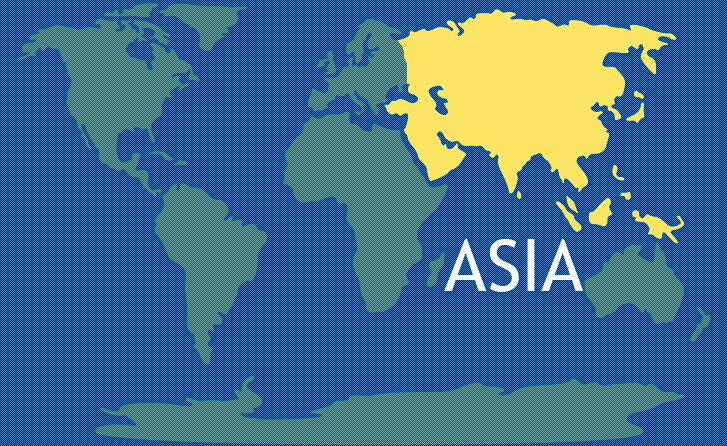
News From Asia
Friday
Indonesia has launched a "golden visa" that allows investors and professionals with coveted skills to stay in the country for five or 10 years. "The golden visa will ease foreigners' investments and contributions in Indonesia as well as attract more quality travelers who will invest and be productive while staying," Indonesian President Joko "Jokowi" Widodo said on Thursday while launching the program. (Nikkei)
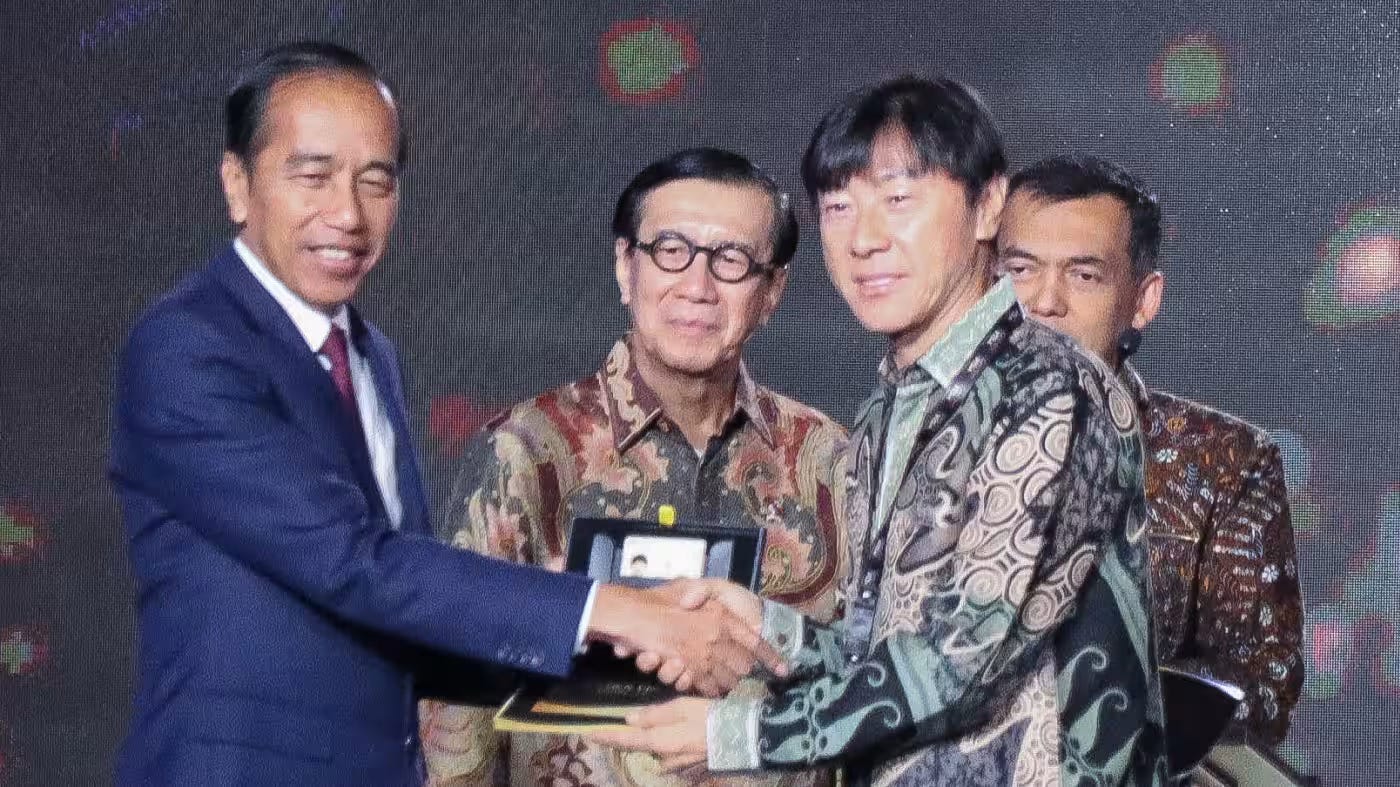
Russia and China should join efforts to counter interference from external forces in Southeast Asia, Moscow’s Foreign Minister Sergey Lavrov told his Chinese counterpart as the strategic partners push for strong coordination in the region as a counterweight to the US. Russia and China should join forces in Southeast Asia, Lavrov tells Wang amid Asean summit. (SCMP)
North Korea’s economy roared back to life as arms transfers with Russia provided support for Kim Jong Un’s regime, allowing the leader to shun diplomacy as he ramped up his threats against the US and South Korea. North Korea’s gross domestic product expanded 3.1% in 2023 from a year earlier, ending a three-year streak of contractions and posting the biggest growth since 2016, according to estimates published Friday by South Korea’s central bank. (Bloomberg)
Sri Lanka will vote on Sep 21 to elect a new president, a government notice said on Friday (Jul 26), a crucial contest that is expected to determine the future of reforms in the South Asian Island nation weathering its worst financial crisis in decades. Nominations for the election have to be submitted on Aug 15, the notice added. Incumbent President Ranil Wickremesinghe is widely expected to run in the election, with almost 17 million of Sri Lanka's 22 million population eligible to vote. (CNA)
Thursday
A rebel army in Myanmar said on Thursday it had seized control of a major regional military headquarters near the border with China, in what could be the biggest recent defeat for a ruling junta that is battling to contain a widening revolt. The Myanmar National Democratic Alliance Army (MNDAA) said it had taken the strategic city of Lashio in northern Shan State, about 120 km (75 miles) from the Chinese border, after 23 days of fighting with government troops. (Nikkei)
Indonesia's foreign minister on Thursday (Jul 25) slammed the Myanmar junta's unwillingness to engage with a regional peace plan to resolve the crisis sparked by its 2021 coup. Retno Marsudi made the remarks after meeting her Singaporean counterpart on the sidelines of an Association of Southeast Asian Nations (ASEAN) foreign ministers meeting in Laos capital Vientiane. (CNA)
Following Typhoon Gaemi's landfall, Taiwan experienced flooding in low-lying areas, landslides, and damage to homes and businesses. As the storm moved up the western Pacific, more than 220 people were reported injured and 22 people died in the Philippines and three people died in Taiwan. According to the Philippine Coast Guard, early on Thursday morning, the oil tanker MT Terra Nova, carrying approximately 1.4 million liters (370,000 gallons) of industrial fuel oil, sank off the coast of Limay town in Bataan province. Of the 16 crew members on board, 15 were saved by rescuers. (Nikkei)
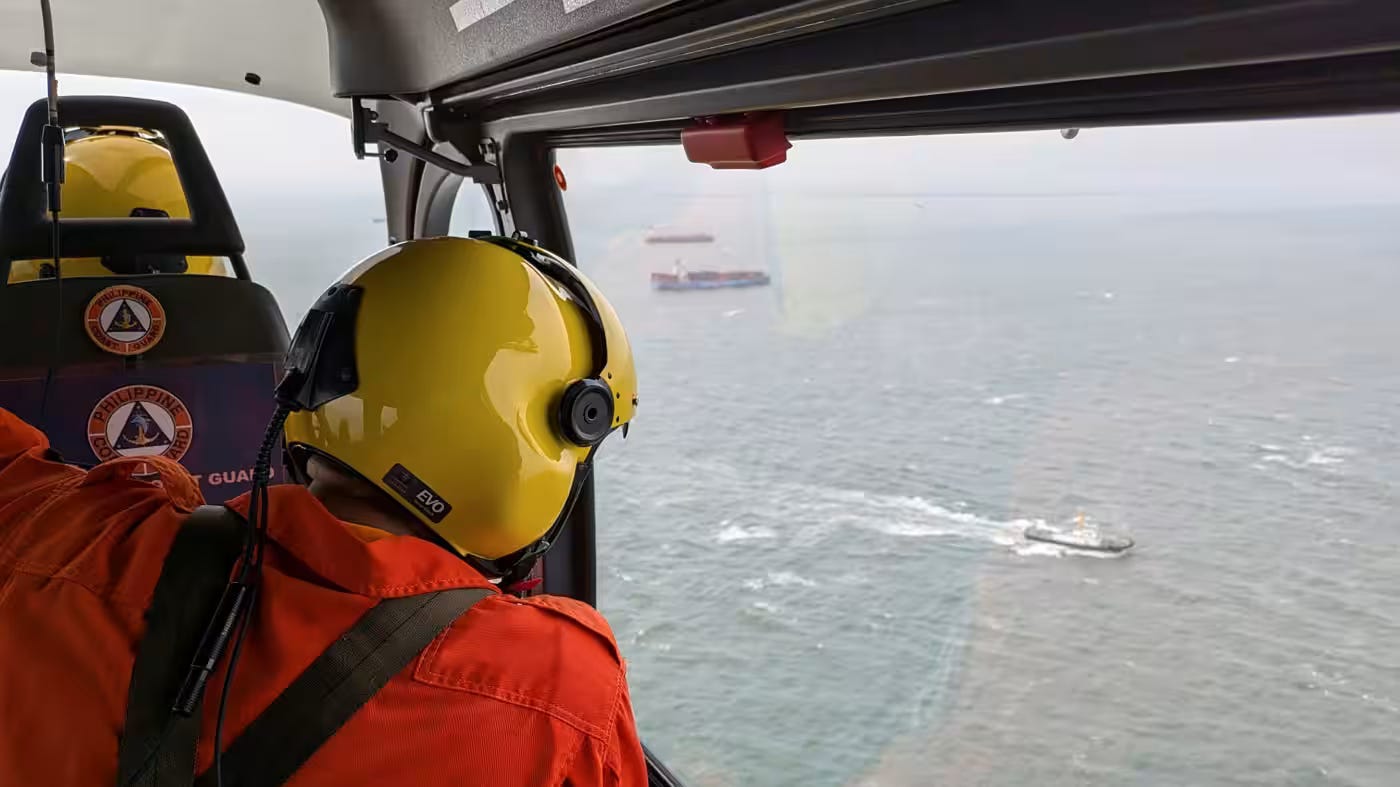
Vietnam began its two-day state funeral for Communist Party chief Nguyen Phu Trong, whose death last Friday signaled a new era in the nation’s political power structure. The ceremonies, which are drawing global dignitaries including US Secretary of State Antony Blinken to Hanoi, began early Thursday morning with hundreds of Vietnamese lining up at a funeral hall to pay respects to Trong. (Bloomberg)
Wednesday
South Korea will raise the cap on meal expenses for public officials for the first time in eight years to better reflect the recent inflationary pressures, the anti-graft agency said Tuesday. The Anti-Corruption & Civil Rights Commission decided to increase the limit to 50,000 won ($36) from 30,000 won ($22) per meal after a meeting Monday. The amendments will take effect as early as September after going through legislative notice and cabinet approval. (Bloomberg)
Hong Kong police have arrested three people and seized HK$1 million (US$128,135) of illegal substances after officers shut down a makeshift laboratory making a new type of drug dubbed “space oil” and packaged as e-cigarette capsules. A source said on Thursday that more than 700 capsules of the controlled drug etomidate, an anaesthetic, was seized after a Tseung Kwan O flat was raided. (SCMP)
The Constitutional Democratic Party of Japan (CDP) and the Democratic Party for the People (DPP) are seeking to cooperate in the upcoming election for the all-important House of Representatives. With the ruling Liberal Democratic Party (LDP) in hot water due to a slush funds scandal involving the party's factions, the two opposition parties believe it is possible to strip it of its majority. (Japan Times)
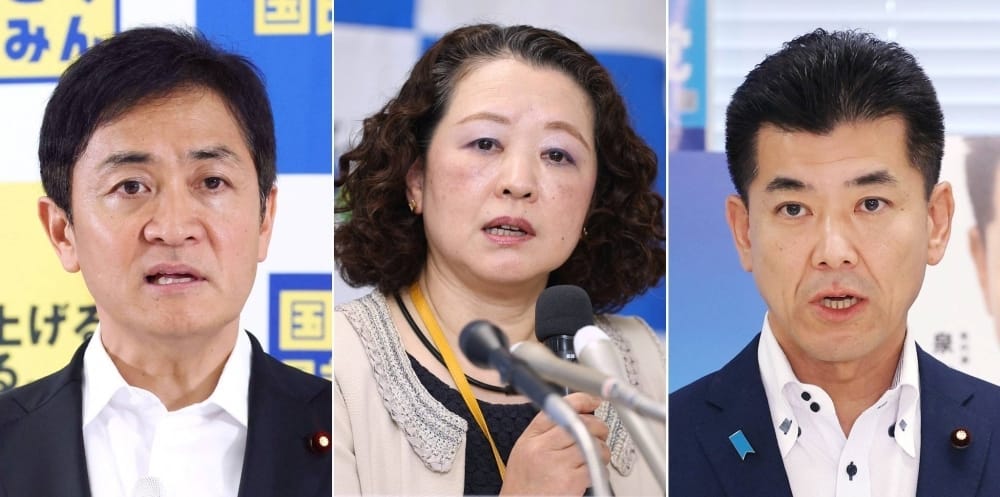
Malaysia is quickly rising in investors' perceptions as the comeback kid of Asia, leaving behind its troubled past and attracting more portfolio inflows and long-term capital. Due to his Pakatan Harapan alliance in parliament, Prime Minister Anwar Ibrahim is likely to stay in power until the next general election, expected in 2027. (Nikkei)
Tuesday
The spread of illegal drugs in Asia is accelerating as the conflict in Myanmar fuels increased cross-border distribution, with a record amount of methamphetamine seized in East and Southeast Asia last year. (Nikkei)
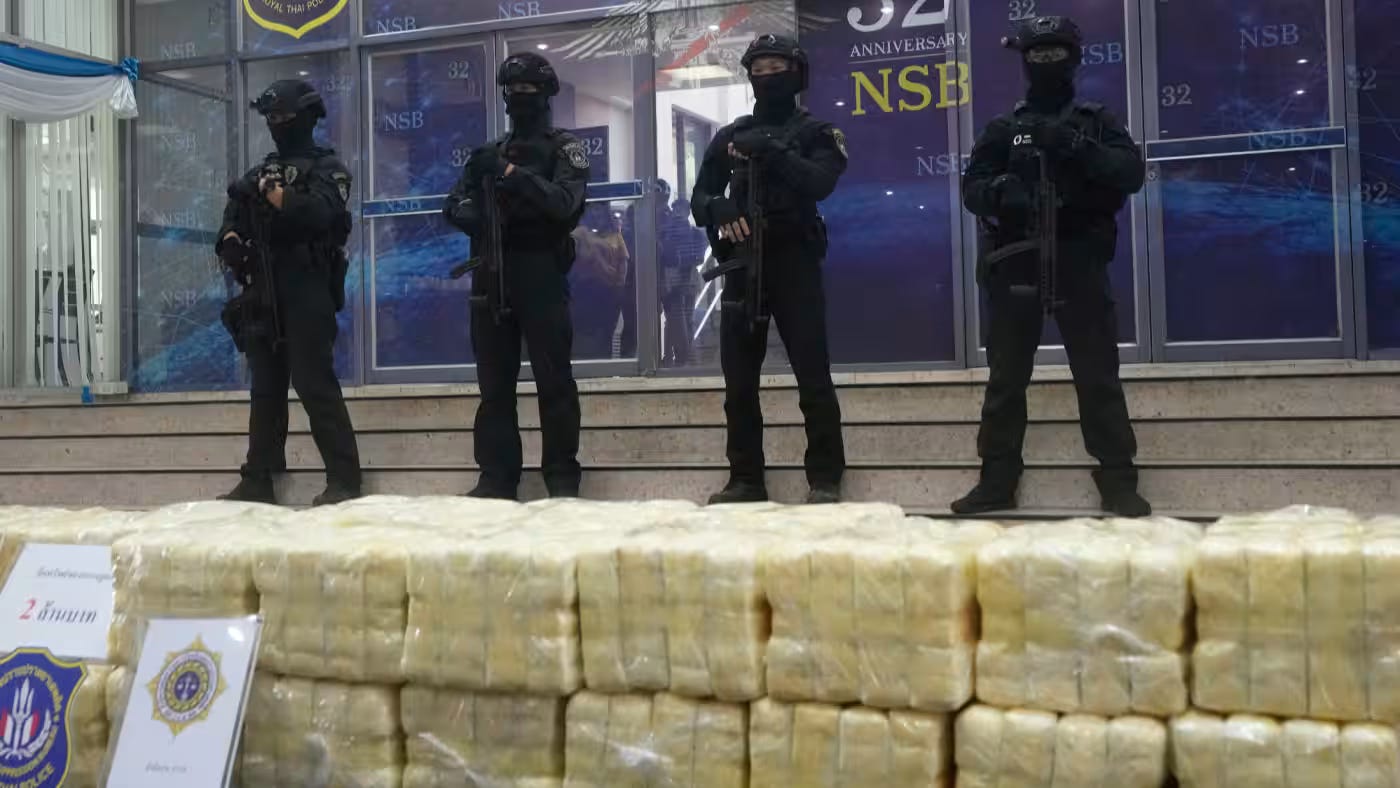
Five people have been detained by Vietnamese police, including a former deputy environment minister, for alleged state asset loss in connection with an investigation into illegal rare earth ore mining. (Bloomberg)
The chairman and president of a major Japanese dietary supplement manufacturer announced their resignation on Tuesday (Jul 23), as the company investigates dozens of deaths that could be linked to cholesterol-lowering tablets. (CNA)
Foreign and defence ministers from Japan and the United States will hold security talks on July 28 for the first time, covering "extended deterrence," a term used to describe the United States' commitment to use nuclear weapons to deter attacks on allies. (Japan Times)
...


